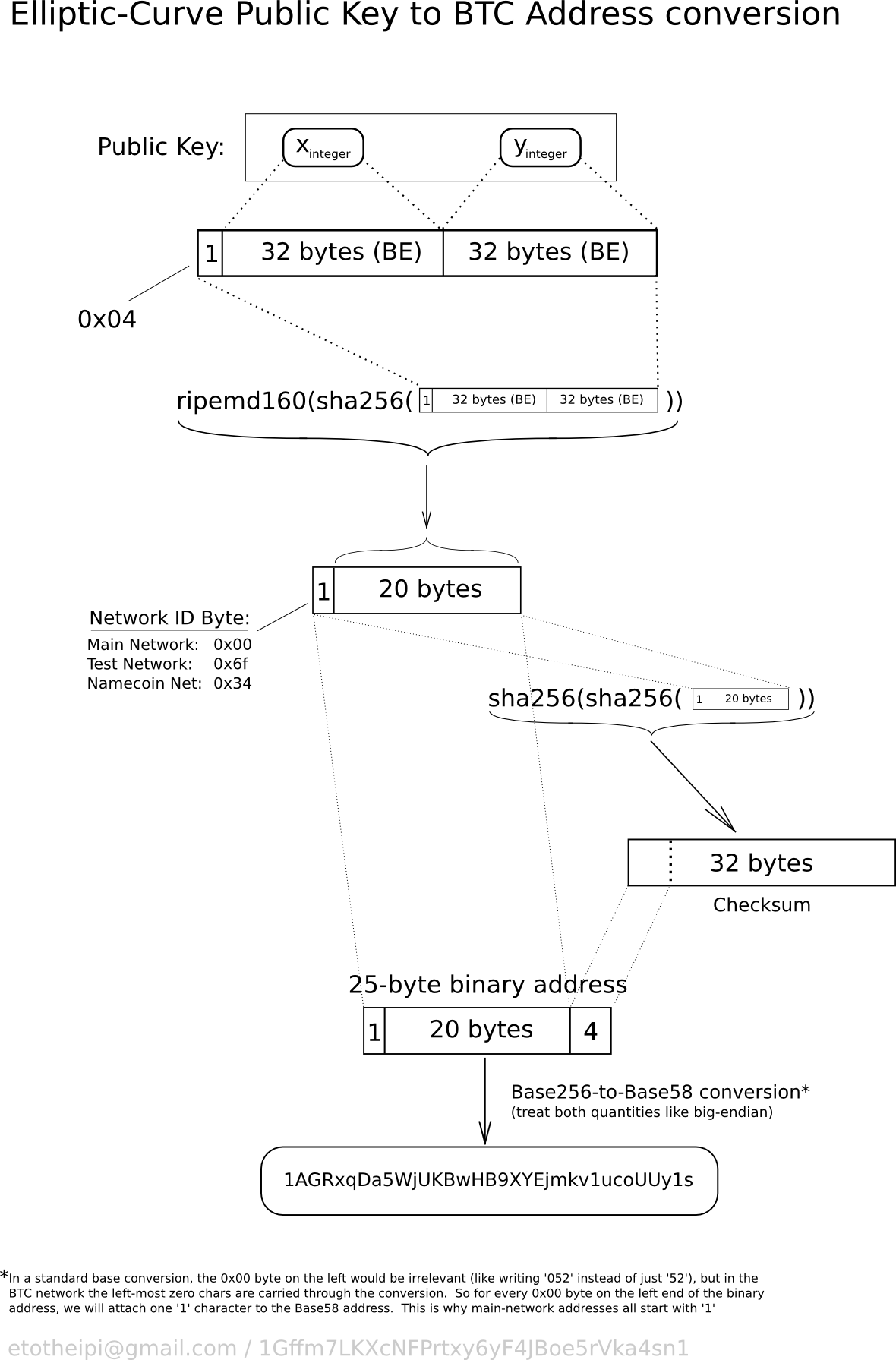The mnemonic phrase is created following the BIP-0039
indexes = GenerateIndexes.generate_indexes()
Mnemonic.generate_phrase(indexes)Further info in the bitcoinbook
The mnemonic phrase is encrypted using the AES algorithm with the CBC cipher mode. In the following diagram you can see how the Cypher Block Chaining (CBC) mode is working. More info here
In code goes like follows
Cypher.encrypt("text to encrypt", "password") Cypher.decrypt(encrypted, "pass")First we create a seed from the already generated mnemonic phrase
seed = SeedGenerator.generate(mnemonic, pass_phrase, opts)A user may decide to protect their mnemonic with a passphrase. If a passphrase is not present, an empty string "" is used instead.
To create a binary seed from the mnemonic, we use the PBKDF2 function with a mnemonic sentence (in UTF-8 NFKD) used as the password and the string "mnemonic" + passphrase (again in UTF-8 NFKD) used as the salt. The iteration count is set to 2048 and HMAC-SHA512 is used as the pseudo-random function. The length of the derived key is 512 bits (= 64 bytes).
This seed is later used to generate deterministic wallets using BIP-0032
Further info in the bitcoinbook
Following the BIP-0032
HD wallets are created from a single root seed, which is a 128-, 256-, or 512-bit random number. Most commonly, this seed is generated from a mnemonic as detailed in the previous section.
Every key in the HD wallet is deterministically derived from this root seed, which makes it possible to re-create the entire HD wallet from that seed in any compatible HD wallet. This makes it easy to back up, restore, export, and import HD wallets containing thousands or even millions of keys by simply transferring only the mnemonic that the root seed is derived from.
Further info in the bitcoinbook
Generate a seed byte sequence S of a chosen length (between 128 and 512 bits; 256 bits is advised) from a (P)RNG. Calculate I = HMAC-SHA512(Key = "Bitcoin seed", Data = S) Split I into two 32-byte sequences, IL and IR. Use parse256(IL) as master secret key, and IR as master chain code.
In case IL is 0 or ≥ n, the master key is invalid (where 'n' is Integers modulo the order of the curve)
n = FFFFFFFF FFFFFFFF FFFFFFFF FFFFFFFE BAAEDCE6 AF48A03B BFD25E8C D0364141) check the Secp256k1
The private key is generated using the crypto module from erlang crypto module
:crypto.hmac(Type, Key, Data) -> Mac- As Type we use :sha512
- As Key we use "Bitcoin seed"
- As Data we use the seed
To generate the Master Private key use the following function:
master_private_key = KeyPair.generate_master_private_key(seed)The public key is generated using the crypto module from erlang crypto module
:crypto.generate_key(Type, Params, PrivKeyIn) -> {PublicKey, PrivKeyOut}- As Type we use :ecdh
- As Params we use :secp256k1
- As PrivKeyIn we use the decimal value of the Master Private key
To generate the Master Public key we use the following function:
master_public_key = KeyPair.generate_master_public_key(master_private_key)Further info in the bitcoinbook
Shows how to convert Public key into Address
Further in the bitcoinwiki and in the bitcoinbook
If available in Hex, the package can be installed
by adding elixir_wallet to your list of dependencies in mix.exs:
def deps do
[
{:elixir_wallet, "~> 0.1.0"}
]
endDocumentation can be generated with ExDoc and published on HexDocs. Once published, the docs can be found at https://hexdocs.pm/elixir_wallet.

